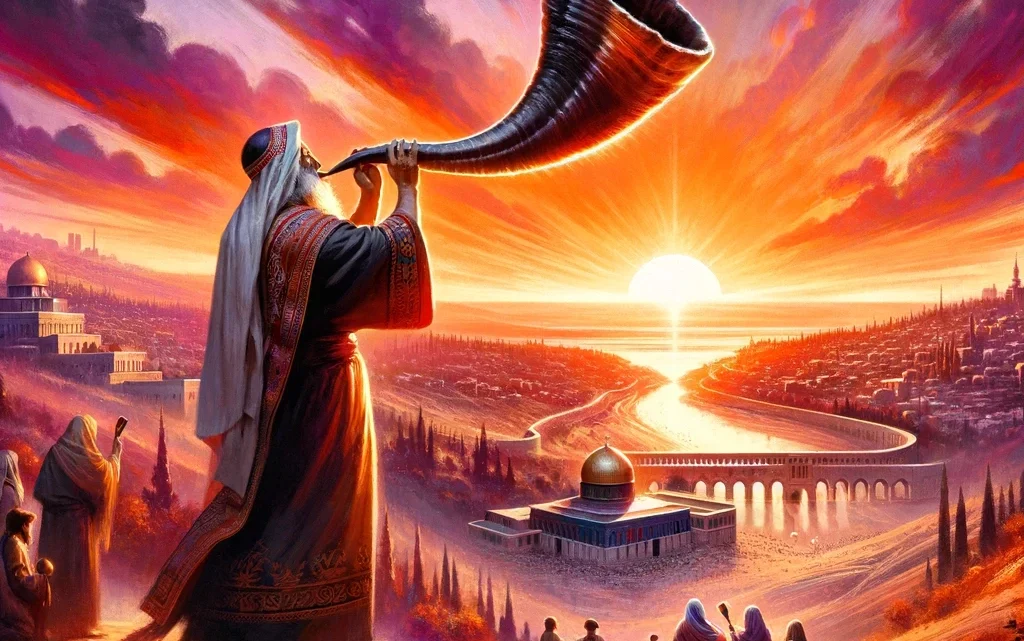Eternal Rhythms of Worship: Embracing the Perpetual Holy Days of Yehovah


In the rich tapestry of faith, the holy days outlined in the Torah are vibrant threads, weaving together past, present, and future in a continuous pattern of worship and remembrance. Given by Yehovah as a perpetual commandment, these festivals are not just historical commemorations but living celebrations, deeply relevant to believers across all generations. Each feast not only marks a significant moment in the relationship between Yehovah and His people but also foreshadows the life, ministry, death, resurrection, and future return of Yeshua. As we journey through the sacred calendar, we embrace the rhythm of worship set by Yehovah, preparing us for the eternal celebration in the millennium and beyond.
The Foundation of Our Faith and the Foreshadowing of Yeshua
The Torah provides a clear foundation for these holy days, each of which is intricately connected to significant aspects of Yeshua’s life and ministry:
• Passover (Pesach) - Leviticus 23:5 commemorates our deliverance from bondage and foreshadows Yeshua’s sacrifice, the Lamb of God who takes away the sin of the world (John 1:29). His crucifixion coincides with Passover, fulfilling the symbolism of the lamb’s blood as a means of salvation.
• Feast of Unleavened Bread (Chag HaMatzot) - Leviticus 23:6-8 represents the removal of sin. Yeshua’s burial during this feast symbolizes the burial of our old leaven of malice and wickedness, as we embrace the unleavened bread of sincerity and truth (1 Corinthians 5:7-8).
• Feast of Weeks (Shavuot or Pentecost) - Leviticus 23:15-21 celebrates the giving of the Torah and the first fruits of the wheat harvest. It is fulfilled in Yeshua by the outpouring of the Holy Spirit, establishing the church and beginning its mission (Acts 2).A Statute Forever and a Promise of Things to Come
These festivals, described as “a statute forever,” signal their eternal significance and foreshadow the complete fulfillment of Yeshua’s work on earth and His second coming. Their observance is a testament to Yehovah’s enduring faithfulness and His ultimate plan for redemption and restoration.
Celebrating into Eternity: The Fall Feasts
The fall feasts—Feast of Trumpets (Rosh Hashanah), Day of Atonement (Yom Kippur), and Feast of Tabernacles (Sukkot)—hold profound prophetic significance related to Yeshua’s second coming, the final judgment, and the establishment of His kingdom on earth:
• Feast of Trumpets (Rosh Hashanah) - Marks the beginning of the Jewish civil year with a call to repentance and renewal. It is seen as symbolic of the future day when the trumpet will sound to announce Yeshua’s return (1 Thessalonians 4:16-17).
• Day of Atonement (Yom Kippur) - The holiest day of the year, focused on atonement and repentance. This day foreshadows the ultimate atonement made by Yeshua and points to a future day of reconciliation and redemption for Israel and all nations.
• Feast of Tabernacles (Sukkot) - Commemorates the Israelites’ dwelling in booths during their desert wanderings and celebrates God’s provision. It prophesies the coming age when Yeshua will dwell with His people, reigning in peace and prosperity (Zechariah 14:16-19).The Sign of Our Worship and the Anticipation of Fulfillment
Observing these holy days as acts of worship not only aligns us with Yehovah’s commandments but also deepens our understanding of Yeshua’s role in our redemption and His future reign. As believers, embracing these eternal rhythms of worship connects us more deeply with our scriptural heritage and prepares us for the glorious fulfillment of Yeshua’s promise to return and establish His kingdom.
In conclusion, the holy days given by Yehovah are a perpetual invitation into His presence, offering us a pattern of worship that spans the ages and foreshadows the complete work of Yeshua. As we observe these festivals with reverence and joy, we affirm our allegiance to Yehovah and anticipate the coming fulfillment of His promises. Let us, therefore, embrace these eternal rhythms of worship, allowing them to shape our faith and our lives as we walk in obedience to Yehovah and await the return of Yeshua.

